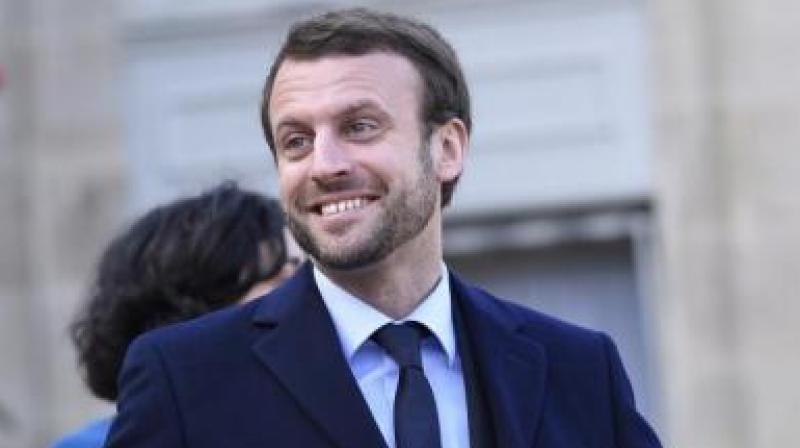Advantage Macron as France on edge

The first round of the French presidential election last Sunday was the culmination of total churning that broke traditional political barriers and threw up new parties. The political division between left and right, as indeed their fringes, with the xenophobic Front National once led by the father of Marine Le Pen on the far right and the Communists on the left, stands redefined. The debate now veers around globalisation and sovereignty, for or against the European Union and rebalancing of the welfare state, and not old ideologies. The Fifth Republic, as created by President Charles de Gaulle, was under serious re-examination. Historically, the Left viewed globalisation paradoxically. On the one hand it saw it as neo-imperialism utilising military force and soft power to advance Western economic and financial interests, but on the other it was useful to advance human rights and counter racism. Socialist President Francois Mitterrand supported the European Union as France hoped to dominate the unified market. The reunification of Germany belied that as the new German economic behemoth became the fulcrum of monetarist policies. But Mr Mitterrand earlier managed to unify the Left in the 1970s and ’80s and rule for 14 years. The Left has now fractured under the pressure of economic stagnation, terrorism and immigration.
President Francois Hollande’s poor ratings put the French Socialists in a bind in selecting its next candidate for President. From this dilemma rose Emmanuel Macron, a centrist-reformist minister in the Hollande government, once his boss opted out. He combined youth, audacity and luck, with Republican Party nominee Francois Fillon and initial leader in the polls coming under the shadow of a scandal involving his wife. When asked early in his political career as a minister whether he was really committed to changing France, he replied: “You are like Saint Thomas. You only believe in what you see. Me too.” Socialists in his own party did not trust his reformist, pro-EU zeal. But he bridged the political divide as the Opposition was sympathetic. The space in the centre opened up as the Socialists put up a Left-winger Benoit Hamon as their candidate. Unsurprisingly Jean-Luc Melenchon, the breakaway candidate on the Left, supported by the Communists, got 19.6 per cent of the vote, compared to Mr Hamon’s 6.4 per cent. But peculiarly the issues on which he on the extreme left and the queen of the extreme right Marine Le Pen agree are more than those they disagree on. For instance, they concur on exiting the EU, abandoning the euro, more social benefits for workers, exit from Nato and the need to normalise relations with Russia. They have both been dubbed “sovereignists”. Perhaps because of this, after the first round, when almost the entire political firmament has endorsed Mr Macron, including former Prime Minister Manuel Valls and defence minister Jean-Yves Le Drian, Mr Melenchon has refused to do so.
Mr Macron has led in the first round and now faces his right-wing rival Marine Le Pen in the May 7 second round. He overcame incumbency by creating a new party “En Marche”, meaning on the march, and by occupying the centrist space vacated by both the ruling Socialists and the Opposition Republicans. It is a variation of Akhilesh Yadav’s gambit in Uttar Pradesh by undertaking a coup against his father and uncles. US President Donald Trump similarly broke the bipolar US political system by remixing elements from across the political divide. His position on trade, for instance, defies Republican Party orthodoxy. Mr Macron’s success, albeit at the first hurdle, has been mostly read as the survival of the European unification. Markets have risen as all modelling indicates that losing candidates’ votes, other than perhaps hardcore followers of the left-wing Mr Melenchon, should swing behind the centrist candidate. France’s choice is between Ms Le Pen’s disruptive and revolutionary ideas and the orderly though painful reform advocated by Mr Macron. Ruchir Sharma in an article attributed Mr Macron’s success to French voters responding to economic revival, the early signs of which are manifest. Second rounds can be tricky, as senior Iranian politician Hashmi Rafanjani discovered in 2005 when he beat Mahmoud Ahmadinejad in the first round with multiple candidates participating, to be ousted by the latter in the run-off. The votes of defeated candidates can veer unpredictably, though logically with the defeated candidates mostly endorsing Mr Macron, he should largely bag them. The black swan that could alter this would be another major terror attack before May 7.
How does the French electoral drama impinge on Indian interests? It benefits India if the EU does not disintegrate as the world order already has multiple stress points. A united Europe is a vital pole in a multi-polar order, which India advocates. Such a Europe also keeps US Presidents from either retreating from global issues or indulging in erratic operations like unleashing missiles on Syria and perhaps on North Korea next. The EU also remains the repository and defender of values that India shares as a civilisation — such as freedom of faith, tolerance and the complete panoply of human rights. It would be more difficult for China to poach technologies or enlarge its geo-strategic footprint if it confronts a united Europe. It is always easier for the larger carnivore to hunt animals separated from the herd. Even more significantly, with a similar churn in India and the ascendance of right-wing forces utilising Narendra Modi’s personality, religion, real and imagined historical hurts and jingoism, there are lessons to be learnt. The most important of these is that one man can quickly reoccupy space that is always available in the middle, if he has the personality, the timing and luck. Who shall be India’s Macron? That is the question India’s Opposition leaders should be asking today.

